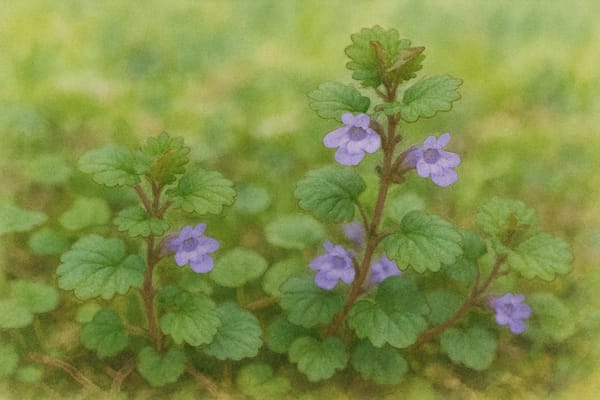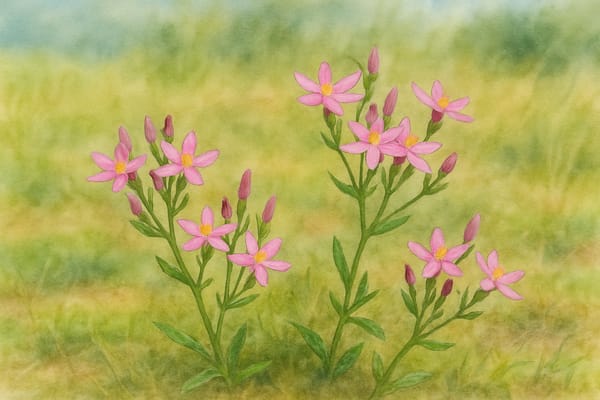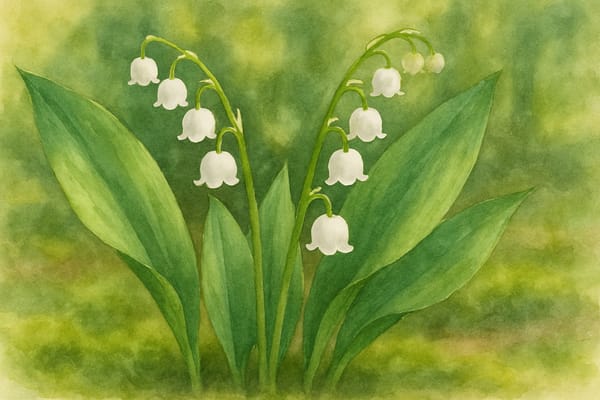The Hidden Healer of Folklore and Hedgerows
Historical and Cultural Significance
Ground-ivy holds a strong place in Cornish and British folklore, valued for its healing powers, protective magic, and seasonal rituals.
Folk Medicine and Brewing Traditions
Known as a spring tonic, Ground-ivy was used to treat headaches, colds, and chest complaints. It was often brewed into ale—called “alehoof”—to “clear the head” and support respiratory health.
Ritual and Festival Plant
In Cornwall, it featured in Maundy Thursday rituals, woven into garlands or worn as crowns to celebrate spring and honor nature’s return. Its use crossed Pagan and Christian traditions.
Protective and Magical Uses
Believed to protect against witchcraft and enchantment, Ground-ivy was used in charms, wreaths for milking cows, and midsummer garlands to bring love, fidelity, and healing. It was burned, brewed, or worn to promote peaceful dreams, honesty, and resilience.
A Plant of the People
Its widespread presence in hedgerows, woodlands, and gardens made it a common yet powerful part of rural life —a symbol of community, health, and connection to the land.
Growing Ground-ivy in Coastal Gardens
| Requirement | Details |
|---|
| Light | Partial shade to full sun; thrives in open woodland or grass |
| Soil | Moist, well-drained; tolerates a range of soils |
| Water | Moist but not waterlogged; tolerates dry spells when mature |
| pH | Neutral to slightly alkaline |
| Salt Tolerance | Moderate; suited to breezy, sheltered coastal sites |
| Hardiness | Hardy in the UK |
Care and Cultivation Tips
- Site Selection:
Ideal for wild edges, woodland borders, and naturalistic plantings. Thrives in light shade but adapts to sun. - Sowing:
Sow in spring or autumn. Can self-seed and spread naturally by creeping stems. - Watering:
Keep moist until established. Low water needs once mature. - Feeding:
No fertiliser needed—thrives in modest soils. - Maintenance:
Can spread rapidly; trim or thin if necessary to control growth. - Pests and Diseases:
Generally trouble-free and supports biodiversity, attracting pollinators.
Coastal Garden Notes
Ground-ivy’s creeping habit makes it useful for ground cover, soil stabilisation, and pollinator support in coastal gardens. Its hardy nature suits naturalistic, low-maintenance settings, echoing its folklore role as a guardian of the land.
Summary
A plant of healing, protection, and tradition, Ground-ivy brings together folklore, rural resilience, and wildlife value. In coastal gardens, it thrives in shady or sunny spots with minimal care, offering a living link to Cornwall’s herbal and cultural heritage.











